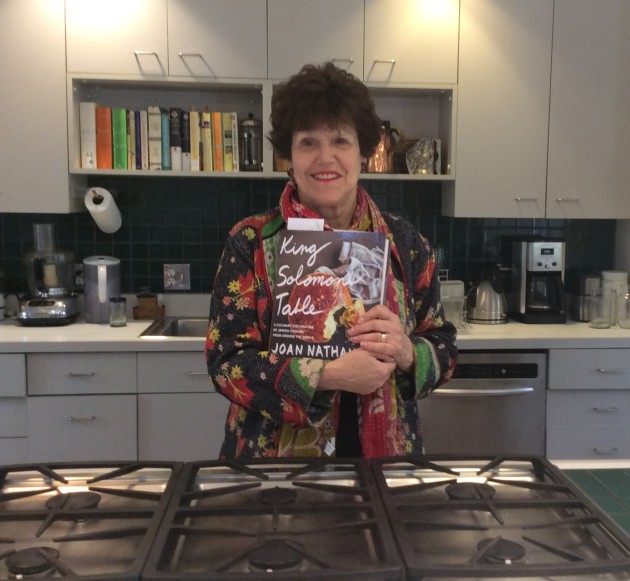Author Archives: Beth Kissileff
March 23, 2018 by Beth Kissileff
What the Passover Story Can Teach Us About Inclusion Riders
Act as though you are redeemed already.
Jews are familiar with this idea. Every day, in our morning prayers, we say the blessing “ga’al Yisrael” thanking God for having redeemed Israel, in past tense. I remember Rabbi Chuck Sheer, the Hillel rabbi at Columbia, pointing this out to me. We utter the blessing with confidence, as though it has happened, when of course we know we are living in a far from perfected and redeemed world. In historical time, Jews believe that we were redeemed from Egypt, but in terms of the present… let’s say that there are no governments currently ruling who should in power were we in a fully redeemed world.
During the Passover story itself, who showed the most initiative and kicked the whole event off? Don’t tell me Moses, because during Women’s History Month that is not the only acceptable answer.
- No Comments
April 7, 2017 by Beth Kissileff
What We Eat Connects Us
 For Joan Nathan, food is a connector, allowing those of different generations and cultural traditions to come together in eating, and in understanding the culture behind the food. For Nathan, the value of food is quite personal as well. When Nathan went to see her 103-year-old mother, Pearl Nathan, in Providence, RI in February, she showed her mother a recipe for hardboiled eggs with spinach from her new cookbook, King Solomon’s Table: A Culinary Exploration of Jewish Cooking from Around the World. Pearl Nathan had not had a good relationship with her own mother, Joan Nathan says, which was a regret of hers. Seeing that her own daughter was carrying on her mother’s food traditions was deeply comforting to Pearl. She passed away the next day, and Joan told Lilith in a phone interview she is pleased that her work could bring her own mother comfort and satisfaction at the end of her life.
For Joan Nathan, food is a connector, allowing those of different generations and cultural traditions to come together in eating, and in understanding the culture behind the food. For Nathan, the value of food is quite personal as well. When Nathan went to see her 103-year-old mother, Pearl Nathan, in Providence, RI in February, she showed her mother a recipe for hardboiled eggs with spinach from her new cookbook, King Solomon’s Table: A Culinary Exploration of Jewish Cooking from Around the World. Pearl Nathan had not had a good relationship with her own mother, Joan Nathan says, which was a regret of hers. Seeing that her own daughter was carrying on her mother’s food traditions was deeply comforting to Pearl. She passed away the next day, and Joan told Lilith in a phone interview she is pleased that her work could bring her own mother comfort and satisfaction at the end of her life.
In a recent meeting at the Bread Furst bakery near her home in Washington DC, Nathan talked about how her Passover seder guests have been varied—including former Ambassador Jeanne Kirkpatrick and retired NPR host and author Diane Rehm––and how she often attends authentic sedarim of Jews of different ethnic groups the second night of Passover. Though she has many restaurant-world connections–Alice Waters of Chez Panisse and Yotam Ottolenghi and Michael Solomonov provided blurbs for the new book––she does not like restaurants that are too loud, preferring the fellowship of guests coming around the table. She said she loves Friday night dinner as a time for people to enjoy the time to speak to each other.
- No Comments
March 9, 2017 by Beth Kissileff
Megillah 101: Purim Lessons for the Trump Era

Photo Credit: Rebecca Siegel
We often think that the book of Esther has one heroine, the queen herself, or perhaps two if we include her relative Mordechai who pushed her to act. But the difficult truth—the one we don’t like to admit—is that if we examine the book more closely we learn that it is the Jews of Persia themselves who went out rioting in the streets, with the permission of the king. The Jews massacred 75,000 individuals the Biblical text tells us (Esther 9:16), while not stealing any plunder.
This is an oddity of Jewish history, that Jews, with full permission and ratification of the ruling power, were able to go out and defeat their enemies, a rarity in Jewish history, yet one that has taken hold (see Bar Ilan University historian Elliot Horowitz’ book Reckless Rites for more on this).
Trying to get behind the difficult and profoundly uncomfortable morality of this aspect of the story undoes many of our assumptions of understanding ourselves as that Jews who are commanded and understood to be “rachmanim benei rachmanim” merciful people children of merciful people. This account of the Jews of Persia out on a killing spree is a text— along with the Levites’ killing of three thousand men after the Golden Calf was erected (Exodus 32: 28), or the deaths of many Egyptian first born in the plagues, or of the men of Shechem at the hands of Shimon and Levi (Genesis 34), or the story of Pinchas, killing others in his zealotry for the Lord (Numbers 25:7-10)—that is hard to understand. How could a merciful or fair God allow so many, some of whom are presumably innocent and were not afforded any kind of due process in a trial, to die?
- No Comments
January 27, 2017 by Beth Kissileff
Why I’m Calling Out Jared and Ivanka

Photo credit Michael Vadon
Sometimes, it is not hard to figure out the right thing to do. When a tyrant tells you to do something wrong, resist.
The midwives did it, refusing to kill Hebrew babies. Why? Because they feared God (Exodus 1:17). Regardless of your theological stance, one has to acknowledge that one path to bravery is the understanding that there is something larger and broader beyond whatever a human tyrant demands that commands respect for values that go beyond the mere will of a despot.
- 2 Comments
 Please wait...
Please wait...